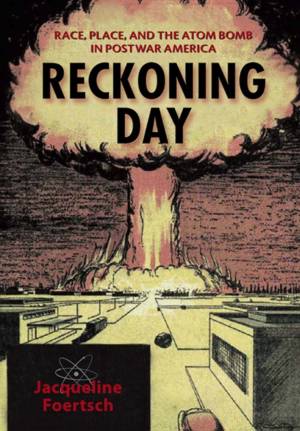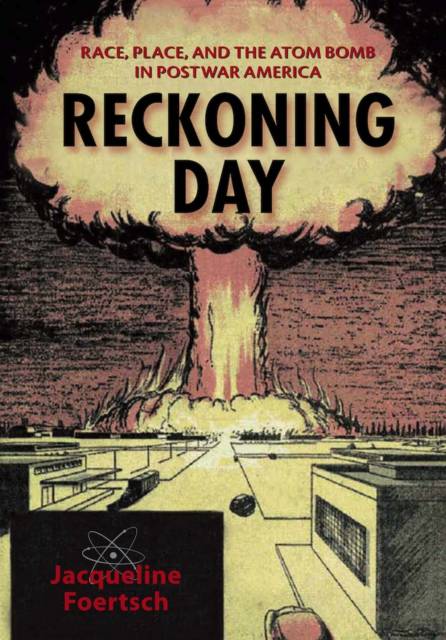
- Retrait gratuit dans votre magasin Club
- 7.000.000 titres dans notre catalogue
- Payer en toute sécurité
- Toujours un magasin près de chez vous
- Retrait gratuit dans votre magasin Club
- 7.000.0000 titres dans notre catalogue
- Payer en toute sécurité
- Toujours un magasin près de chez vous
Reckoning Day
Race, Place, and the Atom Bomb in Postwar America
Jacqueline Foertsch
Livre relié | Anglais
169,95 €
+ 339 points
Format
Description
Too often lost in our understanding of the American Cold War crisis, with its nuclear brinkmanship and global political chess game, is the simultaneous crisis on the nation's racial front. Reckoning Day is the first book to examine the relationship of African Americans to the atom bomb in postwar America. It tells the wide-ranging story of African Americans' response to the atomic threat in the postwar period. It examines the anti-nuclear writing and activism of major figures such as W.E.B. Du Bois, Dr. Martin Luther King Jr., and Lorraine Hansberry as well as the placement (or absence) of black characters in white-authored doomsday fiction and nonfiction. Author Jacqueline Foertsch analyzes the work of African American thinkers, activists, writers, journalists, filmmakers, and musical performers in the "atomic" decades of 1945 to 1965 and beyond. Her book tells the dynamic story of commitment and interdependence, as these major figures spoke with force and eloquence for nuclear disarmament, just as they argued unstintingly for racial equality on numerous other occasions. Foertsch also examines the location of African American characters in novels, science fiction, and survivalist nonfiction such as government-sponsored forecasts regarding post-nuclear survival. In these, black characters are often displaced or absented entirely: in doomsday narratives they are excluded from executive decision-making and the stories' often triumphant conclusions; in the nonfiction, they are rarely envisioned amongst the "typical American" survivors charged with rebuilding US society. Throughout Reckoning Day, issues of placement and positioning provide the conceptual framework: abandoned at "ground zero" (America's inner cities) during the height of the atomic threat, African Americans were figured in white-authored survival fiction as compliant servants aiding white victory over atomic adversity, while as historical figures they were often perceived as "elsewhere" (indifferent) to the atomic threat. In fact, African Americans' "position" on the bomb was rarely one of silence or indifference. Ranging from appreciation to disdain to vigorous opposition, atomic-era African Americans developed diverse and meaningful positions on the bomb and made essential contributions to a remarkably American dialogue.
Spécifications
Parties prenantes
- Auteur(s) :
- Editeur:
Contenu
- Nombre de pages :
- 264
- Langue:
- Anglais
Caractéristiques
- EAN:
- 9780826519269
- Date de parution :
- 30-09-13
- Format:
- Livre relié
- Format numérique:
- Genaaid
- Dimensions :
- 178 mm x 254 mm
- Poids :
- 725 g

Les avis
Nous publions uniquement les avis qui respectent les conditions requises. Consultez nos conditions pour les avis.






